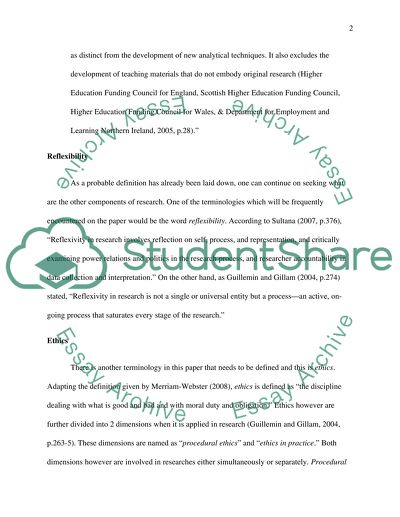Cite this document
(“Ethics and Reflexivity in Research Essay Example | Topics and Well Written Essays - 2750 words”, n.d.)
Retrieved from https://studentshare.org/sociology/1396493-ethics-and-reflexivity-in-research
Retrieved from https://studentshare.org/sociology/1396493-ethics-and-reflexivity-in-research
(Ethics and Reflexivity in Research Essay Example | Topics and Well Written Essays - 2750 Words)
https://studentshare.org/sociology/1396493-ethics-and-reflexivity-in-research.
https://studentshare.org/sociology/1396493-ethics-and-reflexivity-in-research.
“Ethics and Reflexivity in Research Essay Example | Topics and Well Written Essays - 2750 Words”, n.d. https://studentshare.org/sociology/1396493-ethics-and-reflexivity-in-research.


